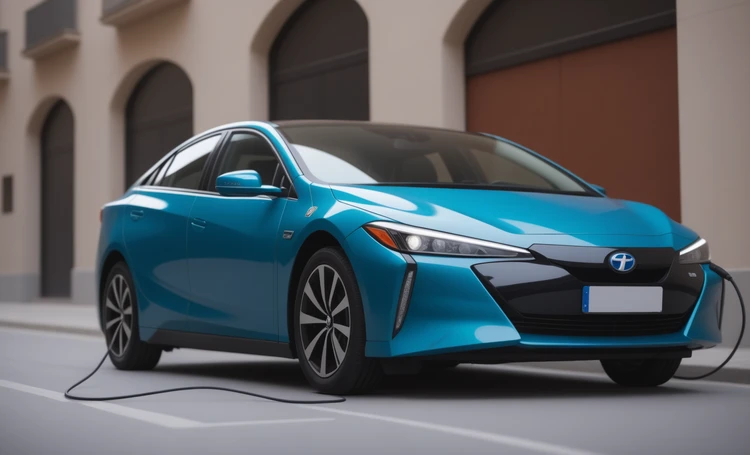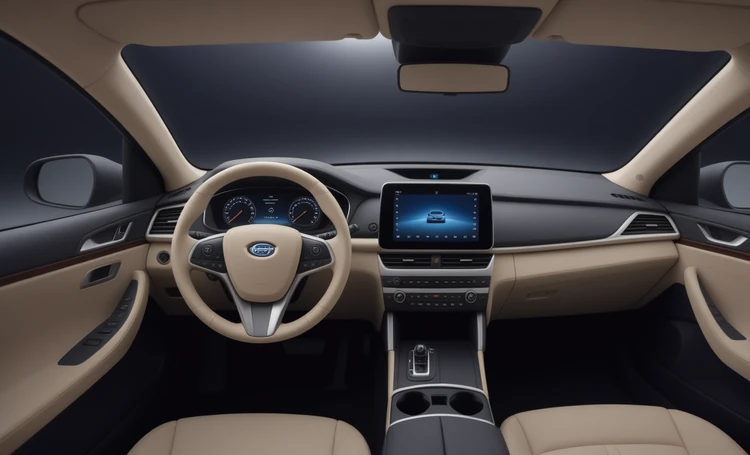🚗 Hybrids: optimization of fuel consumption
Every year more and more car enthusiasts in Germany, America and Europe are paying attention to hybrid cars. These vehicles are attractive due to their potential for significant fuel savings and are a response to rising oil prices and tightening environmental regulations. See how hybrids save fuel here for more details.
🌿 How hybrids achieve consumption optimization
Dual Power Technologies
Hybrid cars use a combination of a gasoline engine and an electric motor to optimize fuel consumption. The gasoline engine is used for acceleration and high-speed driving, while the electric motor is effective in urban environments with frequent stops and starts.
Regenerative braking systems
These systems allow energy normally lost during braking to be returned to the battery. In this way, hybrid cars recover and store energy, reducing the need for gasoline.
Aerodynamic design
Hybrid vehicle manufacturers place great emphasis on aerodynamic efficiency to minimize air resistance and thus fuel consumption.
🛠️Innovation in the field of hybrid technologies
Battery improvement
Manufacturers are constantly working to increase the capacity and efficiency of batteries, which directly affects fuel consumption and driving range.
Intelligent control systems
Modern hybrids are equipped with computer systems that analyze driving style and road conditions, automatically adjusting the ratio of use of electric and gasoline energy for maximum savings.
Plugin hybrids
Plug-in hybrid vehicles (PHEVs) offer the ability to charge from a conventional electrical outlet, allowing the use of electric energy for daily trips, reducing the need for gasoline to a minimum.
🚀 Advantages of using hybrid cars
Saving on fuel
Hybrids can significantly reduce fuel costs thanks to the effective combination of two types of engines and regenerative braking.
Low emissions
Reducing dependence on gasoline leads to lower emissions of carbon dioxide and other harmful substances, which has a positive effect on the environment.
State benefits
In many countries, to encourage the transition to environmentally friendly transport, owners of hybrids can count on tax breaks and preferences.
Integration with renewable energy sources
Hybrid vehicles are ideal for integration with solar panel or wind turbine systems, allowing the use of renewable sources to charge the batteries.
Technological innovation
Technologies built into hybrids, such as start-stop systems and adaptive energy management, contribute to additional fuel savings.
Comfort and performance
Modern hybrid cars are not only economical, but also offer a high level of comfort and good dynamic performance comparable to traditional cars.
💡 How to choose a hybrid car
Determining needs
Before purchasing a hybrid, it's important to evaluate your daily routes and driving style to choose a vehicle with the performance and electric range you want.
Model range research
The market offers many hybrid models, each of which has its own characteristics. It's important to study reviews, test drives and comparison reviews to make an informed choice.
Cost of ownership
When calculating your total cost of ownership, consider not only the purchase price, but also fuel, maintenance, insurance and potential resale costs.
🌍 The contribution of hybrid cars to the fight against global warming
Reducing greenhouse gas emissions
Hybrids help reduce CO2 emissions, which is a key factor in the fight against global warming.
Increasing energy efficiency
The use of hybrid cars contributes to a more rational use of fossil fuels and increases the overall energy efficiency of transport.
Stimulating technology development
The rise of hybrid vehicles is driving innovation in clean technology and renewable energy.
📊 Comparative analysis of hybrid and traditional cars
To illustrate the advantages of hybrid cars over traditional ones, let’s draw up a comparative table:
| Parameter | Hybrid cars | Traditional cars |
|---|---|---|
| Fuel consumption | Short | High |
| CO2 level | Reduced | High |
| Fuel dependence | Low | High |
| Innovative technologies | Yes | No |
The operation of hybrid cars involves some nuances that potential owners should take into account.
Care and maintenance
Although hybrids require regular maintenance, it can be more expensive due to the complexity of the design and the need for specialized equipment and knowledge.
Battery cost
One of the main components of a hybrid vehicle is the battery, which may require replacement after a certain period of use, which entails significant costs.
Market price
Hybrid cars may have a higher market value than traditional ones due to their environmental friendliness and fuel efficiency.
🔍 The role of hybrids in the future of the auto industry
Every year, hybrid cars are increasingly becoming part of the lives of consumers, and their role in the future of the automotive industry is undeniable.
Sustainable development
Hybrid technologies are becoming an important part of the sustainable development strategy of many countries aimed at reducing environmental pollution and greenhouse gases.
Innovative solutions
The development of hybrid vehicles is driving innovation in the automotive industry, including improved energy management systems and new materials.
Global trends
The trend towards an increasing share of hybrid vehicles in the market indicates a global shift towards greener and more fuel-efficient vehicles.
📝 Conclusions
Hybrid vehicles are an effective means of optimizing fuel consumption and reducing the environmental impact of transport. They combine the benefits of both traditional cars and electric vehicles, offering owners the opportunity to reduce fuel costs and contribute to the fight against global warming.
Hybrid technologies are constantly being improved, and their popularity is growing not only among consumers, but also at the government level, which makes them a significant factor in the sustainable development of the transport infrastructure of the global community.


